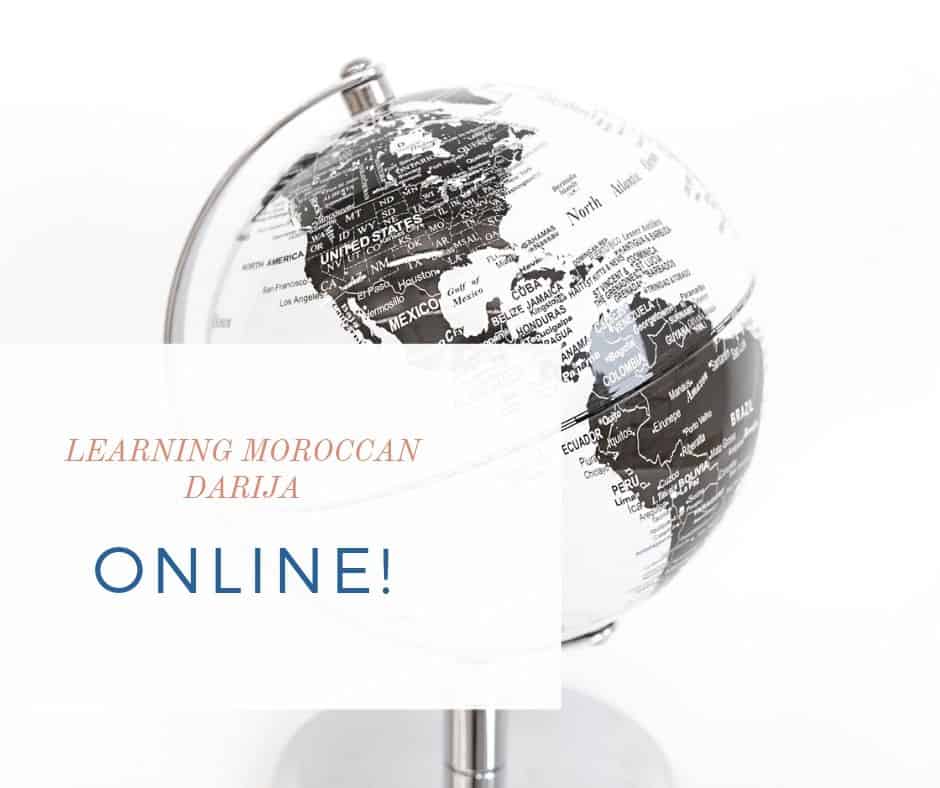Learning Moroccan Arabic (Darija) is honestly one of the hardest things I’ve set out to do. I am NOT a verbal learner; I much prefer to read and write to learn anything. The problem with this is that Darija is very much a verbal language. People don’t use it to read and write; they use it to speak in their daily lives.
This meant the only way to really learn it was to be immersed or in a situation where someone could teach me. When we first moved, there weren’t a lot of places that were teaching Moroccan Arabic.
Classical Arabic yes.
Quran, yes.
But to be able to have regular conversations? Not so much.
Even the resources online weren’t great and were few and far between.
I recently tested out a website called Preply to see if it might be a good solution for those of you who aren’t living in Morocco but want to learn Moroccan Arabic.
The good news? I think it’s certainly an option!
The bad news? You aren’t in Morocco!
What is Moroccan Arabic (Darija)?
Moroccan Arabic, also known as Darija, is the dialect of Arabic spoken in Morocco. It shares similarities with the dialects spoken in Algeria, Mauritania, and Tunisia, but differs significantly from those spoken further east in countries such as Egypt, Lebanon, and the Gulf states. Darija is primarily a spoken language, used in everyday conversation rather than in written form, which presents unique challenges for those learning it. Unlike Modern Standard Arabic (MSA), which is used for formal writing and media across the Arab world, Darija is the language of daily life in Morocco.

The uniqueness of Darija lies in its mixed influences, a result of Morocco’s complex history of rule by different governments and empires, including French and Spanish colonization in the twentieth century. While its base is Arabic, Darija incorporates elements from Amazigh (the native Berber languages), French, and Spanish. This blend is evident in everyday vocabulary, where basic phrases like “thank you,” “hello,” and “how are you?” retain their Arabic roots, while other words have been borrowed from French and Spanish.
For example, the Darija word for cheese is “fromage,” borrowed from French, and the word for wheel is “rueda,” borrowed from Spanish. This linguistic fusion makes Darija a unique and fascinating dialect that reflects Morocco’s rich cultural tapestry.
If you’re planning a visit to Morocco, familiarizing yourself with some basic Darija phrases can enhance your experience and help you connect more deeply with the local culture.
Why learn Moroccan Arabic (Darija)?
Studying Moroccan Arabic (Darija) offers several benefits:
- Enhanced Communication: Learning Darija allows for effective communication with native speakers in Morocco. This facilitates daily interactions with host families, taxi drivers, vendors, and others, making it easier to build relationships and fully immerse oneself in the local culture.
- Cultural Integration: Understanding Darija helps you to integrate more smoothly into Moroccan society. You can participate in social activities, understand local customs, and engage in conversations with ease, enriching your cultural experience.
- Practical Use: Unlike Modern Standard Arabic, which is primarily used in formal settings, Darija is the language of everyday life in Morocco. This practical aspect means you can immediately apply your learning in real-world situations, such as shopping, dining, and navigating public transportation.
- Travel Benefits: Knowing Darija can make traveling within Morocco more enjoyable and less stressful. It can help you avoid tourist traps, negotiate better prices, and gain a deeper appreciation for the places you visit.
- Economic Advantages: For those looking to work or do business in Morocco, proficiency in Darija can be a significant asset. It demonstrates cultural sensitivity and can enhance professional relationships and opportunities.
- Linguistic Foundation: Learning Darija can also provide a foundation for understanding other Arabic dialects and even Modern Standard Arabic, as many of the grammatical structures and vocabulary overlap.
- Personal Growth: Mastering a new dialect like Darija challenges you and enhances their cognitive abilities. It also fosters a sense of accomplishment and broadens global perspective.
Overall, studying Moroccan Arabic (Darija) offers a blend of practical, cultural, and personal benefits that enrich the learning experience and open up new opportunities. By learning introductions and useful expressions in Moroccan Arabic (Darija), you’ll enhance your ability to communicate effectively, deepen your cultural understanding, and build meaningful connections with locals.
How does Preply work?
Preply isn’t a website that teaches lessons, rather it’s a platform that brings tutors and students together. When you visit the site you can sort by the language you want to learn, the teachers’ price per hour, and the time of day the teacher is available. You can further filter by specialty such as for beginners, for children, intensive lessons, literature and several others.
Each teacher displays their language(s) and home country as well as other information.
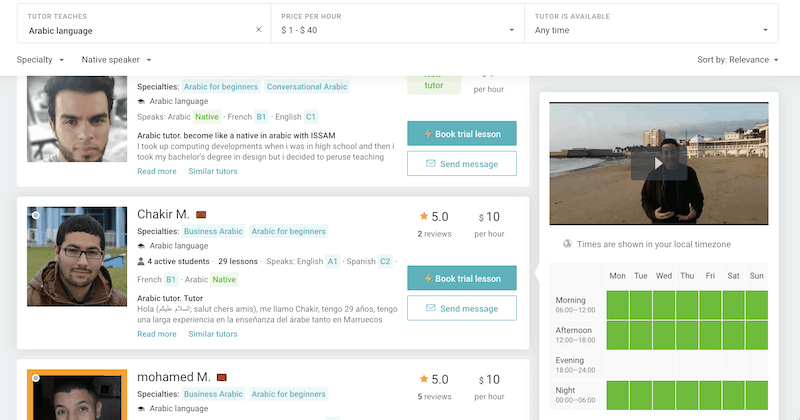
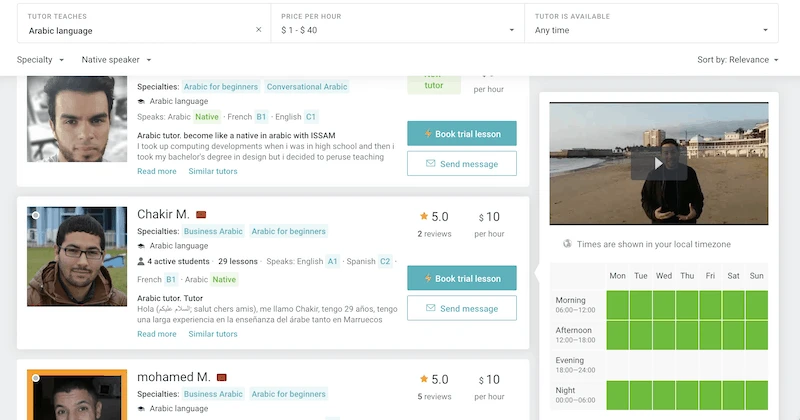
I really like that there are also short videos from the teachers so you get a sense of who they are and how they are conversationally.
How much does Preply cost?
That depends on the teacher you choose. Each person has a different rate that is set per hour. When you need to buy more hours you can choose from 5, 10 or 20 hours with a slight cost savings the more hours your purchase.
You should keep in mind if you cancel or reschedule within 4 hours of your lesson you will be charged.
How Does a Lesson Work?
When you schedule your lesson you access the classroom space on the Preply website. The space is similar to a Skype or Facetime call. There’s also a chat box on the right side of the screen.
How your teacher works will vary depending on the person. I can say for my lesson I was really happy. The teacher I chose knew that I wasn’t a total beginner so she needed to figure out where I was at and what we needed to work on.
For the first lesson we basically just talked. I did my best in Arabic and she helped when I got stuck. She would ask me questions but I felt like she had already listened to me because one of the things I had said I really wanted was to be able to have longer and more in depth conversations – and that’s where we started!
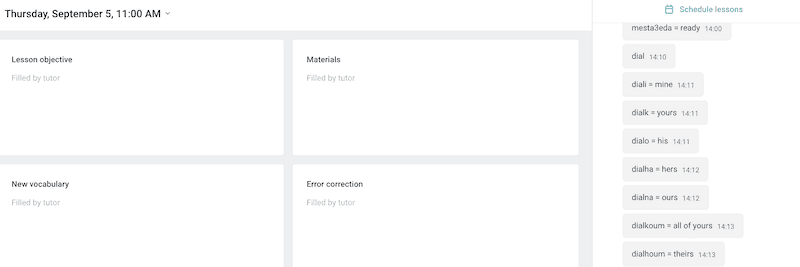
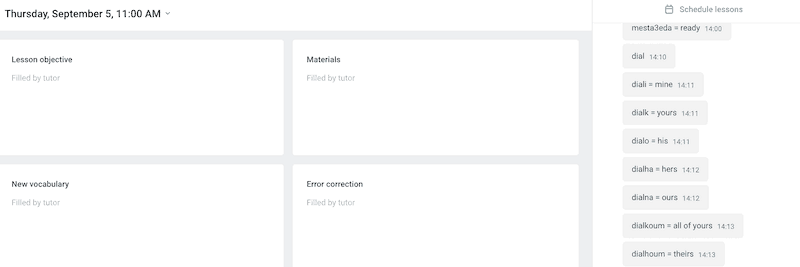
After the lesson was done we talked about what I really wanted to be able to communicate and also what she could see I struggled with. This is what she will use for our continued lessons.
After the lesson, there’s also a workspace to add homework and anything that was covered to review.
Why Preply?
I’ve tested out a few different platforms similar to this one and have been somewhat disappointed. The other ones that I have tried all focused on specific things. Sometimes it was just beginner level.
Other times it was just basic vocabulary or already set lessons. What I like about this is that you’re getting an actual person who will teach you actual things!
You can always change tutors if you didn’t click or just didn’t like your tutor.
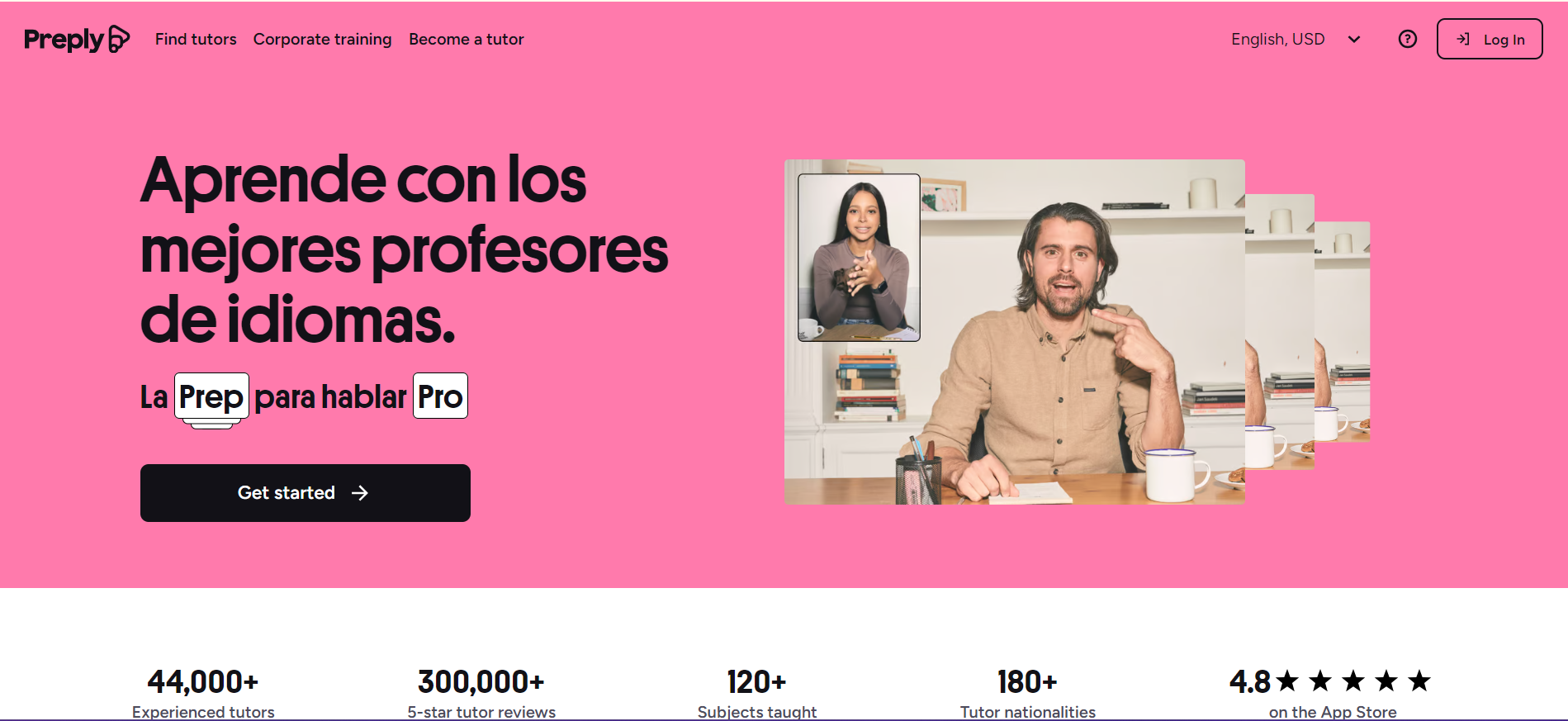
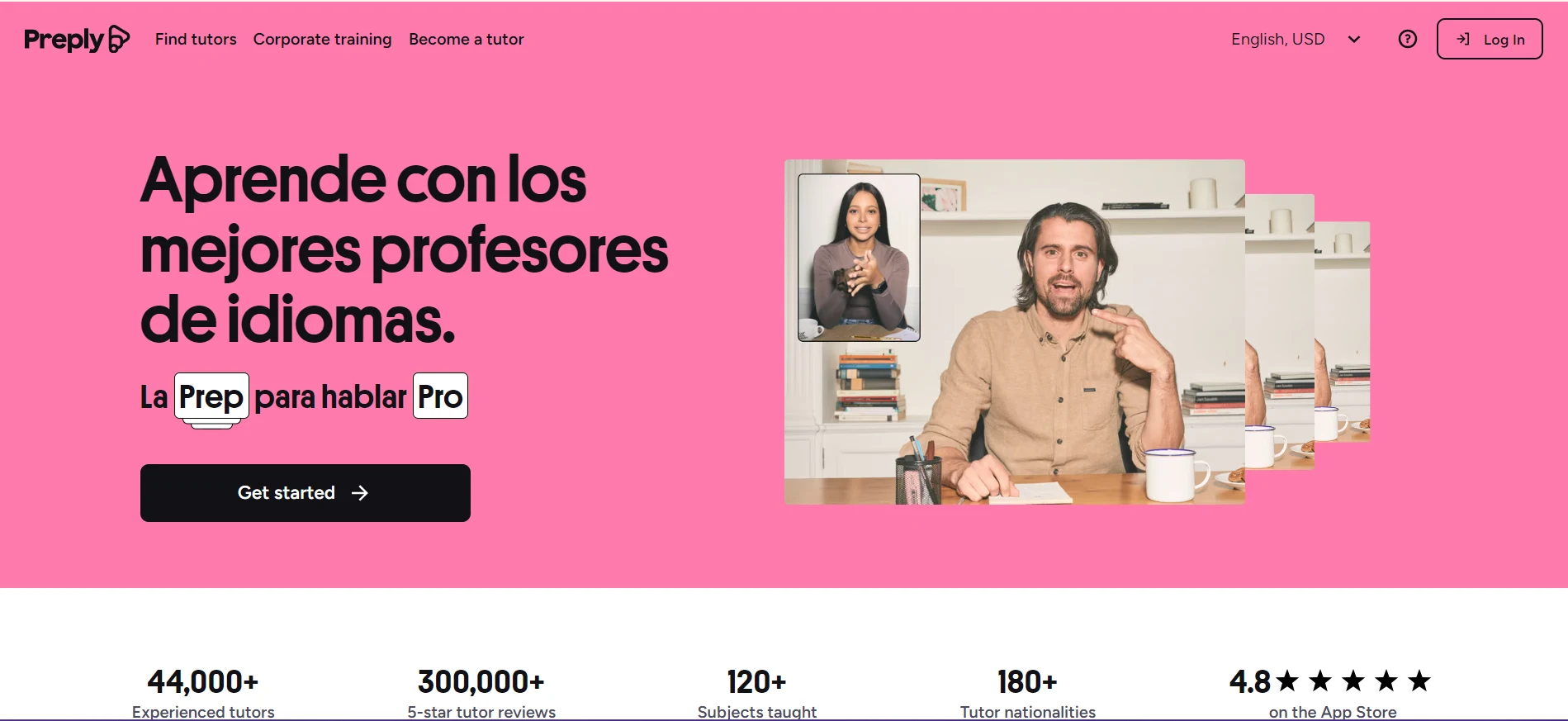
I think that for a lot of people who are trying to learn Moroccan Arabic, there are limited options—especially if you’re not a beginner. This is one way you can interact with a teacher and learn either from the beginning or to further develop your language skills if you already know the basics. Additionally, engaging in language lessons can also prepare you for things you should do when meeting someone overseas, such as understanding cultural nuances and effectively communicating in their native language.
Also – if you’re looking to teach, you can become a tutor on Preply. They’re actively seeking those interested in teaching!

